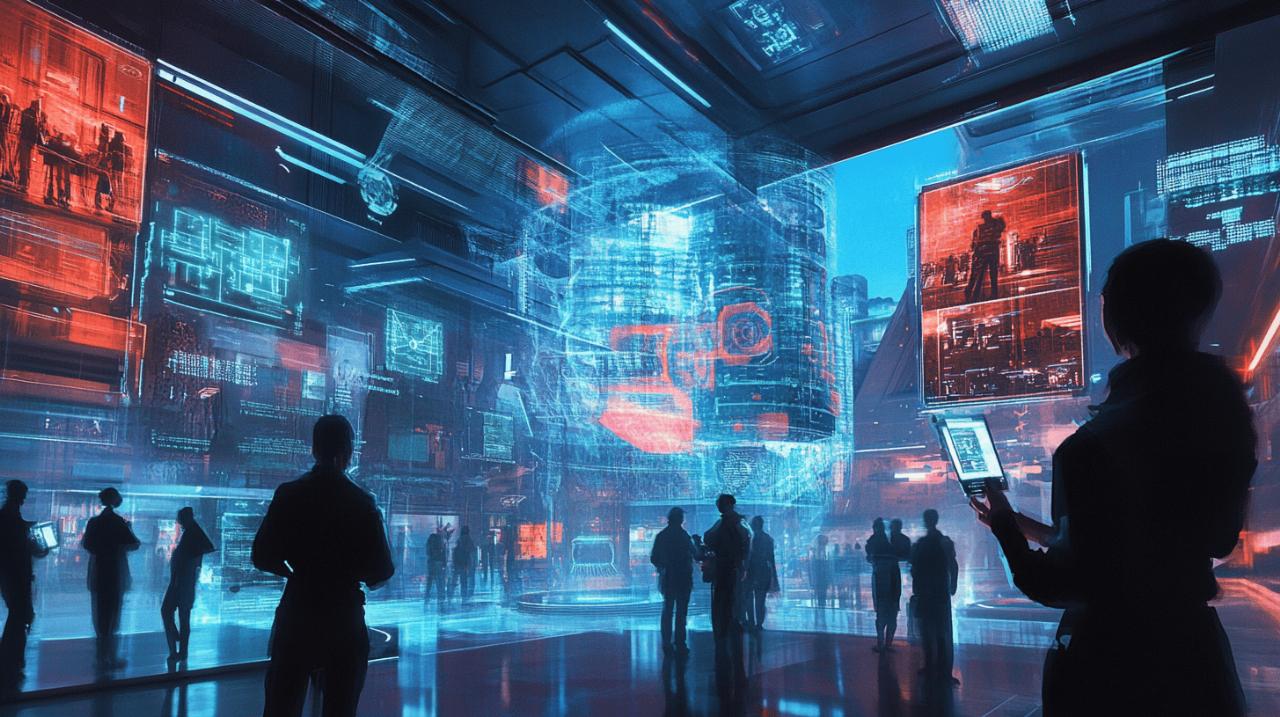The digital landscape is evolving at an unprecedented pace, transforming how we live, work, and interact with the world around us. From artificial intelligence to quantum computing, technological innovations continue to reshape our daily experiences and future possibilities. As we navigate this rapidly changing environment, staying informed about the latest developments becomes increasingly important for both individuals and businesses seeking to harness the power of digital transformation.
Cutting-edge technologies reshaping our digital landscape
The digital revolution shows no signs of slowing down, with groundbreaking technologies emerging across various sectors. According to reports from digitalstreet.it, a leading platform for digital trends and innovation insights, the intersection of different technologies is creating unprecedented opportunities for advancement. These technological convergences are particularly evident in fields like artificial intelligence ethics and digital platforms, where rapid evolution is challenging traditional boundaries.
Quantum computing's rapid evolution
Quantum computing represents one of the most significant technological leaps of our time, promising computational capabilities that far exceed what's possible with classical computers. This technology operates on quantum bits or qubits, which can exist in multiple states simultaneously, enabling complex calculations at speeds unimaginable with conventional systems. The implications for cybersecurity are profound, as quantum computers could potentially break current encryption methods while also offering new solutions for data privacy challenges.
The race for quantum supremacy has intensified in recent years, with tech giants and startups alike investing heavily in research and development. While still in its early stages, practical applications are beginning to emerge in fields ranging from drug discovery to climate modeling. The technology governance frameworks surrounding quantum computing are still developing, highlighting the need for thoughtful regulation that balances innovation with security considerations.
Extended reality: beyond traditional digital experiences
Extended Reality technologies—encompassing virtual reality, augmented reality, and mixed reality—are creating immersive digital experiences that blur the line between physical and digital worlds. These technologies are transforming content creation processes and opening new frontiers for digital innovation across industries. From virtual meetings and training simulations to enhanced shopping experiences, XR is redefining how we interact with digital content.
The healthcare sector is particularly benefiting from XR innovations, with applications ranging from surgical training to therapeutic interventions. Similarly, education is witnessing a revolution through immersive learning experiences that enhance engagement and retention. The market for XR technologies is expanding rapidly, with forecasts suggesting significant growth as hardware becomes more accessible and content ecosystems mature.
Transformative digital innovations in everyday life
 Beyond specialized applications, digital innovations are increasingly integrated into everyday experiences, reshaping how we manage our homes, communicate, and access services. The technology impact extends far beyond convenience, touching on fundamental aspects of personal privacy, security, and social interaction. Recent reports have highlighted concerning incidents, including a dating safety app that leaked the personal data of thousands of women, emphasizing the critical importance of robust data protection measures.
Beyond specialized applications, digital innovations are increasingly integrated into everyday experiences, reshaping how we manage our homes, communicate, and access services. The technology impact extends far beyond convenience, touching on fundamental aspects of personal privacy, security, and social interaction. Recent reports have highlighted concerning incidents, including a dating safety app that leaked the personal data of thousands of women, emphasizing the critical importance of robust data protection measures.
Smart home ecosystems and iot integration
The concept of the connected home continues to evolve, with smart devices becoming increasingly sophisticated and integrated. Modern smart home ecosystems extend beyond basic automation to create environments that learn and adapt to user preferences. The Internet of Things forms the backbone of these systems, enabling seamless communication between devices and platforms while generating valuable insights from usage patterns.
Security considerations remain paramount as homes become more connected, with cybersecurity experts emphasizing the importance of regular updates and strong authentication methods. The integration of renewable energy systems with smart home technology is also gaining traction, aligning digital innovation with sustainability goals in response to climate change concerns. As these ecosystems mature, standardization efforts are improving interoperability between different manufacturers' devices, creating more cohesive user experiences.
Ai-powered personal assistants: the next generation
Artificial intelligence is dramatically enhancing the capabilities of digital personal assistants, moving beyond simple voice commands to offer context-aware support across multiple domains. These AI systems are becoming increasingly sophisticated in understanding natural language, remembering past interactions, and anticipating user needs. The evolution of this technology raises important questions about artificial intelligence ethics, particularly regarding data collection and user privacy.
Recent controversies highlight the potential risks in this space, with reports that Elon Musk's AI chatbot Grok may have published user messages without permission. Similarly, concerns about content moderation are growing as companies like TikTok reduce human moderator staff while increasing reliance on AI systems. Despite these challenges, the potential benefits remain significant, with AI assistants helping users navigate complex digital environments, manage information overload, and access personalized services.
Education represents another frontier for AI applications, with educators like Sal Khan expressing optimism about the technology's potential in schools. From personalized learning paths to administrative efficiency, AI tools are beginning to transform educational experiences. Meanwhile, in healthcare, AI technologies are enabling remarkable breakthroughs, including a recent case where a woman with motor neurone disease regained her voice through just eight seconds of audio input, demonstrating the powerful human impact of thoughtful technology applications.




